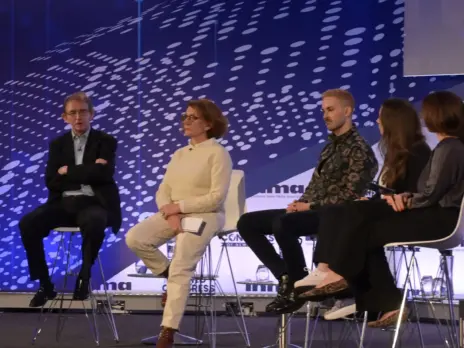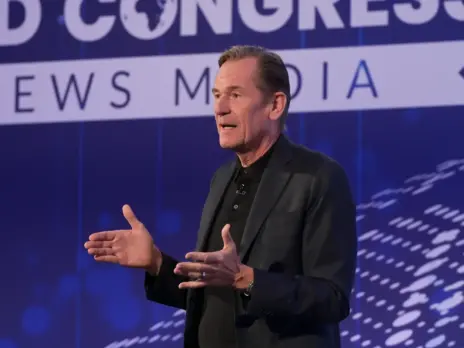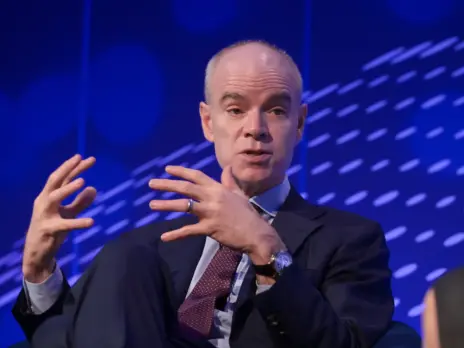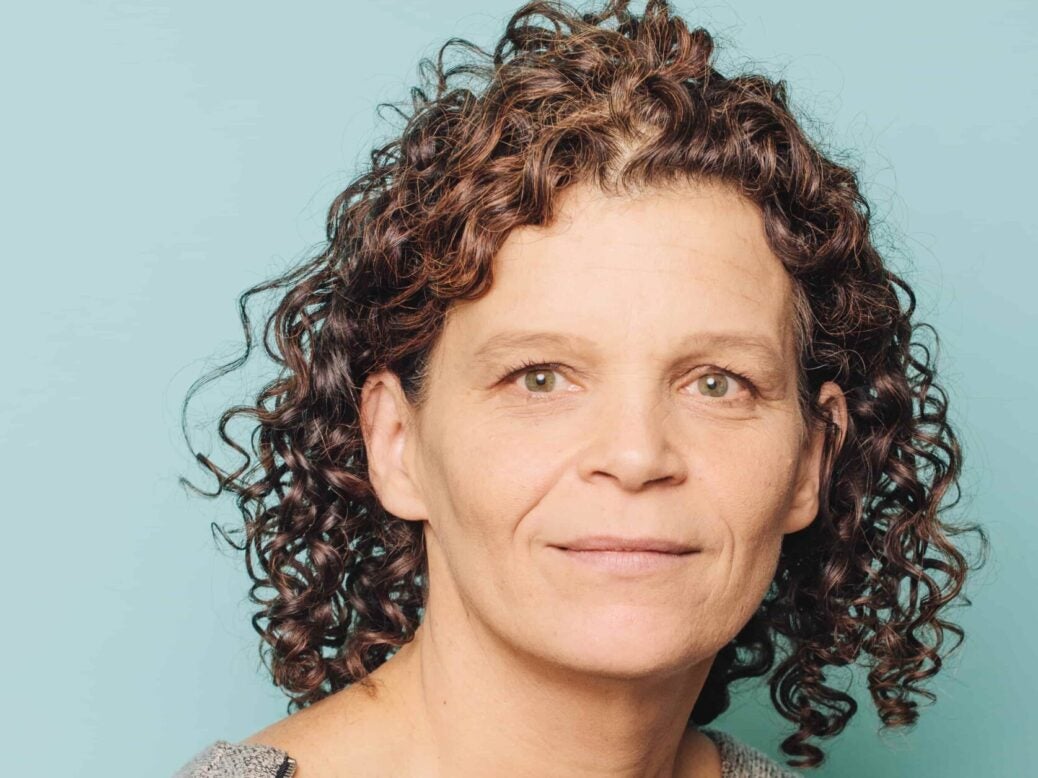
“Smart, fearless journalism” is the tagline of American investigative news outlet Mother Jones – but would this mission be possible without its non-profit model heavily based on reader donations?
Chief executive Monika Bauerlein told Press Gazette’s Future of Media Explained podcast: “We would not be able to do the kind of public service journalism that we do, that is really the entire focus of our newsroom if we had to rely on commercial revenues.”
With a budget of $17m, of which around 6% of revenue comes from advertising and 15% from magazine subscriptions, Bauerlein said: “We would just barely be able to keep the lights on – but not provide any public service journalism.”
For example, a Mother Jones reporter went undercover for four months as a private prison guard to uncover the inner workings of an “opaque” system, after which the magazine spent 14 months doing further reporting and fact-checking before publication in 2016. Bauerlein said the project cost between $300,000 to $350,000 overall.
Ultimately around 1.5 million to 2 million people read the piece, and it brought in around $10,000 in advertising revenue.
“So that kind of journalism is just not going to exist with any other model than with reader support, particularly over the long haul,” Bauerlein said. “I think some people are under the impression that foundations, particularly institutional donors, will support this kind of work – and that can be true for a portion of it, but is almost never true over a long period.
“The fact that Mother Jones has been here doing this kind of reporting for 47 years is entirely because individuals at every level have chosen to support it.”
Mother Jones (named after a prominent US organiser for mine workers) began in 1976 in the years after Watergate when, Bauerlein said, a “feeling was in the air that investigative journalism could really change the world but also that investigative journalism was not being directed at all the targets that it could go after – for example, the founders felt really strongly that corporations were being not sufficiently focused on in investigative reporting”.
Today, three-quarters of revenue at Mother Jones comes from reader support, with around 50,000 people in any given year who donate, allowing it to sustain a newsroom of 50 journalists to produce its website and bi-monthly print magazine.
Historically, advertising made up about 13 to 15% of revenue – with this now down to 6%, Bauerlein told Press Gazette "the trajectory is pretty clear that we would not be here at this point" without reader support. The remaining revenue portion is made up of some institutional giving, and at various times different single-digit sources such as podcasting and its merchandise store.
Readers increasingly responsive to idea of donations
Bauerlein, who was appointed co-editor of Mother Jones in 2006 and became chief executive in 2015, said there is an increasing understanding of the importance for readers to support in-depth, investigative journalism if they want it to exist. Individual giving to independent news organisations grew by 53% between 2018 and 2021, according to recent research.
"Particularly in the last few years, we have found that people are really responsive to the idea that the traditional business models for the press, primarily advertising, are dead or dying and that for democracies to have a free and vibrant independent press it needs to become a public good that citizens support."
This is why, similar to The Guardian which began prominently asking readers for donations in 2016, Mother Jones decided to keep its journalism free rather than ask readers to fund it through a paywall.
Bauerlein said they put forward the idea to readers that "journalism is not something that you purchase for yourself but something that you want to exist for the world".
She described the growth in journalism going behind paywalls as a "major crisis". "I understand why that is and that newsrooms have to stay in business, but it means that digital spaces in particular are now full of good information that is accessible only to people who can pay and disinformation and garbage that is free and abundant, and I think that's a really dangerous environment."
The non-profit model for news is more common in the US than the UK, where it is harder legally for journalism organisations to operate as not-for-profit charities.
Whichever side of the Atlantic, Bauerlein believes that commercially-oriented news organisations asking for donations "typically is not going to work" because people will not want to subsidise shareholders. But she pointed out that in the US some commercial news organisations are pivoting to a non-profit model, while other non-profits are springing up to fill gaps left by closures.
For example, a new non-profit newsroom called Signal Cleveland launched in October following the gutting of the Cleveland Plain Dealer newspaper, while the Philadelphia Inquirer was donated to non-profit ownership in 2016.
Bauerlein said: "I don't think we know yet how much of a vibrant journalism ecosystem individual donations can support... but I do think that we also need to figure out whether there might be additional sources of revenue including something that is not very significant yet in the US but perhaps could in the future be, which is public support of some kind."
At Mother Jones, readers are asked for donations at the bottom of stories, at the top of the homepage, and in regular, specific campaigns.
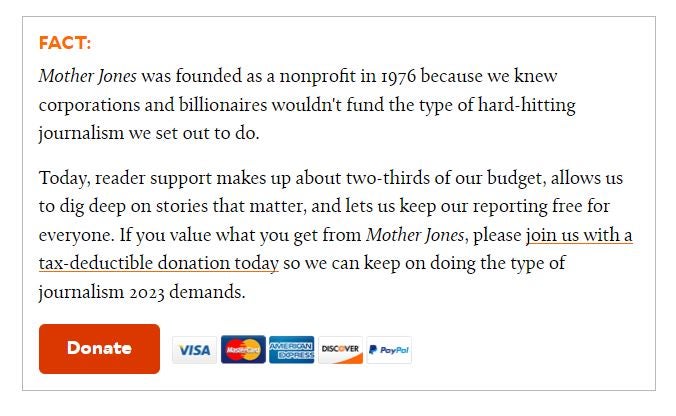
Some organisations take a heavier "begging" approach with more desperate emotional appeals, Bauerlein said, but Mother Jones had come to the conclusion this was not the best method for them.
"The decision that we made was that we should be true to ourselves and true to what our audiences are looking for and to our great relief that is in fact something that people are responding to and, I think, a useful counterpoint to a lot of the more manipulative fundraising and marketing content that you see out there," she said.
This ties into the idea that every fundraising appeal from Mother Jones should be "authentic" so it comes in the same voice as its journalism. Bauerlein said they also have to be open about their numbers as the readers "are really de facto our owners and if we ask them to continue supporting the work, we owe it to them to be really transparent".
No 'cushion' in reader donations strategy
For all the positives from reader support, some elements are stressful: Mother Jones' autumn fundraising campaign came up about $100,000 short, while 15% of its total online giving usually comes in the final week of the year - and 10% in just the final two days. This is a general trend in philanthropic giving in the US, due to a combination of donations being tax deductible meaning people want to get them in before the end of the tax year, as well as the holiday spirit.
Nonetheless Bauerlein admitted this creates a "constant struggle" as "there's really never any cushion".
But she said: "We are transparent with our audience about that too. You really are making the case for the work every single day with every single story and I think in this environment for journalism that's incredibly stressful, but less stressful than being reliant on these, for example, corporate entities, that can just pull the plug at any minute when the quarterly numbers don't go up."
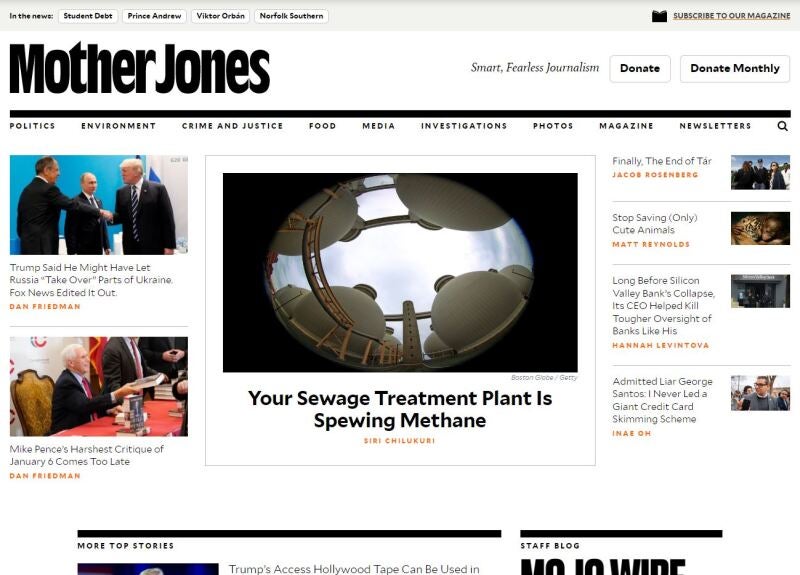
Over the past six months layoffs have been made in many newsrooms in the US and UK due to headwinds including rising newsprint and energy costs and a difficult advertising market. Many of those were at commercial news organisations with a high reliance on advertising, such as most recently Reach, Morning Brew, DC Thomson and BDG Media.
Quality over quantity to tackle news fatigue
Despite being less reliant on advertising than many of these publishers, Bauerlein said Mother Jones still has a period of uncertainty ahead: "I don't think we know yet how it's going to shake out. It definitely affects Mother Jones like everyone else. I think anytime that the economy is uncertain, people's decision-making is more uncertain, both in terms of their news consumption, so to speak, and their decision to support journalism."
She also cited news fatigue with people getting "really tired of being bombarded with doom and gloom headlines". Almost three quarters of newsroom leaders (72%) expressed concern in a survey published at the start of the year over consumers turning away from the news.
But Bauerlein said the Mother Jones team is "quite intentional" in talking about this with its audience: "We asked them about how they are feeling and how they are coping with news fatigue, and one of the things that they told us was that it's really important for them to build a connection with an outlet that focuses on the most important stories and that doesn't deluge them with headlines there that have their urgency cranked up to 11 all the time.
"So I think in some ways people are making a bit of a shift from quantity and doom scrolling and just ingesting huge quantities of news to more quality and are actually spending a little more time with smaller numbers of stories that they really care about."
Bauerlein remained optimistic, therefore, that the Mother Jones audience will continue to support its particular brand of journalism during this period. "What gives me hope is that there have been many of these kinds of crises before and Mother Jones readers have really stepped up to support us through all of them," she said. "So I know I can say with a lot of confidence that Mother Jones will be here, but whether we'll have to struggle through this next year or two or three, or really be able to forge a deeper and more powerful connection with audiences, I think it still remains to be seen.
"I think there's a tremendous opportunity at a moment when people are very much hungry for information that they can trust and journalism that they can trust. We find the primary driver for people to come to Mother Jones is that they can really see that we do the work and they can trust us, and so there's a lot of opportunity to forge those connections, but we're definitely going to have to be on our toes."
Email pged@pressgazette.co.uk to point out mistakes, provide story tips or send in a letter for publication on our "Letters Page" blog

